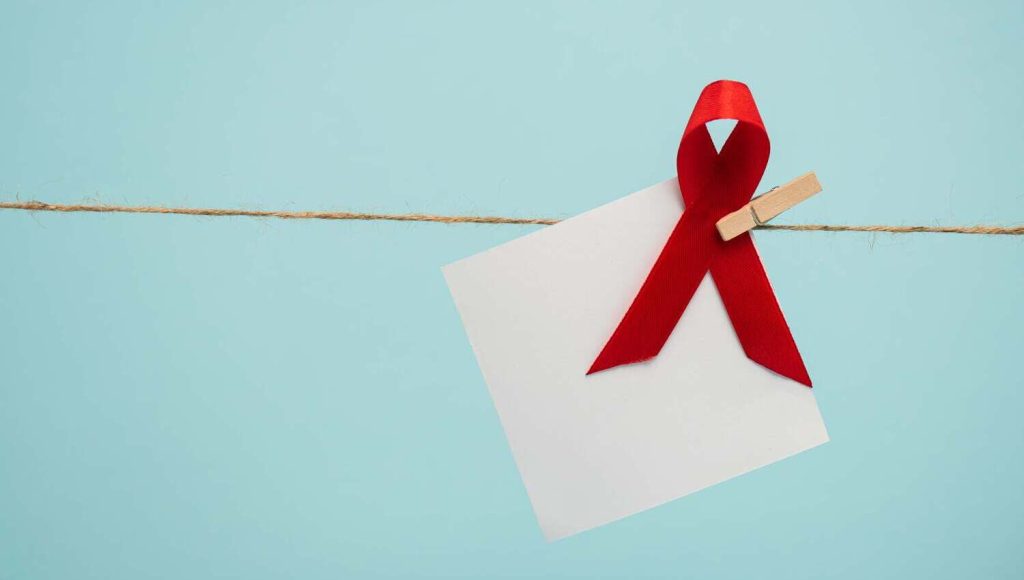Medical Marijuana Treatment For HIV/AIDS
- Nicholas DiBella
- Published: May 22, 2020
- Updated: December 3, 2024
- Fact-checked by Dr. Desiree Granados

While managing the symptoms of HIV/AIDS can be challenging for many individuals, medical marijuana may alleviate some common problems associated with these conditions. While it is not a cure, cannabis might offer relief from a range of symptoms associated with the condition and its treatments, improving the quality of life for many patients.
Let’s explore the potential benefits of marijuana for HIV/AIDS, how to obtain a medical marijuana card, and practical tips for using cannabis effectively.
Does Marijuana Help with HIV/AIDS?
Yes, marijuana has been shown to potentially help alleviate some symptoms of HIV/AIDS and the side effects of antiretroviral therapies. Studies suggest that cannabis might reduce chronic pain, nausea, and appetite loss commonly experienced by individuals living with HIV/AIDS.
These effects are linked to the interaction between cannabinoids (active compounds in marijuana) and the body’s endocannabinoid system, which regulates processes like pain perception, mood, and appetite.
For example, a study published in 2018 found that individuals with neuropathic pain, a frequent complication of HIV, were seen to experience over 50% pain relief from the help of cannabis. Research also indicates that marijuana might improve appetite and prevent weight loss, a critical concern for many HIV/AIDS patients.
Additionally, some patients report that cannabis helps reduce stress and anxiety, supporting mental well-being during the challenges of managing a chronic condition.
What Is HIV/AIDS, and What Are Its Symptoms?
HIV (Human Immunodeficiency Virus) is a virus that attacks the body’s immune system, specifically targeting CD4 cells (T cells), which are vital for fighting infections. If untreated, HIV can progress to AIDS (Acquired Immunodeficiency Syndrome), the most severe stage of the virus, where the immune system is severely weakened.
Common Symptoms of HIV/AIDS:
- Acute HIV Infection: Fever, swollen lymph nodes, rash, sore throat, and muscle aches during the initial phase.
- Chronic HIV: Gradual immune system damage leading to recurring infections, fatigue, and weight loss.
- AIDS: Severe immune suppression, opportunistic infections, night sweats, and rapid weight loss.
Antiretroviral therapy (ART) is the standard treatment for managing HIV. While effective at controlling the virus and preventing its progression, ART can cause side effects such as nausea, fatigue, and insomnia. These side effects, alongside the symptoms of HIV itself, are where medical marijuana may provide complementary relief.

Can You Get a Medical Marijuana Card for HIV/AIDS?
Yes, you can get a medical marijuana card for HIV/AIDS in the majority of states with a medical marijuana program. In fact, most states in the U.S. recognize HIV/AIDS as a qualifying condition for medical marijuana.
If you live in a state where HIV/AIDS is not listed as a qualifying condition you may still qualify for a medical marijuana card. For example, states like South Carolina and Virginia do not specifically list HIV/AIDS, but they both list Cachexia (wasting syndrome), which may apply to individuals with HIV/AIDS who are unable to maintain their body weight.
The Sanctuary Wellness Institute offers services to help individuals obtain a medical marijuana card in various states. Our experienced team connects patients with licensed medical marijuana doctors who can evaluate your condition and determine eligibility.
How to Use Marijuana for HIV/AIDS
There are several ways to consume marijuana to manage HIV/AIDS symptoms, and the method you choose should align with your lifestyle and medical needs:
- Smoking or Vaping: Provides fast relief for symptoms like nausea or pain but may not be ideal for those with respiratory issues.
- Edibles: Offer long-lasting effects and are discreet, making them a popular option for appetite stimulation and chronic pain management.
- Tinctures and Oils: Allow for precise dosing and can be taken sublingually or added to food.
- Topicals: Used for localized pain relief or inflammation.
For guidance on choosing the best consumption method, consult a medical marijuana doctor. Remember, the effectiveness and side effects of cannabis vary by individual, so it’s important to start with a low dose and adjust as needed.
What Are the Best Marijuana Strains for HIV/AIDS?
Certain cannabis strains are particularly effective in addressing the symptoms of HIV/AIDS. These include:
- Granddaddy Purple: An indica-dominant strain known for its relaxing effects, it may help with pain relief, insomnia, and stress management, making it ideal for evening use.
- Jack Herer: A sativa-dominant strain that is uplifting and energizing, often recommended for improving mood and stimulating appetite.
- Blue Dream: A hybrid strain offering a balance of relaxation and focus, it can help manage multiple symptoms like pain, stress, and fatigue.
To learn more about which strain may be right for you, take a look at our blog on the difference between indica and sativa.
Conclusion
Medical marijuana offers a promising option for managing the symptoms of HIV/AIDS, including chronic pain, nausea, and appetite loss. While it may not cure the condition, cannabis could significantly improve the quality of life for many patients. If you’re interested in exploring medical marijuana as a treatment option, The Sanctuary Wellness Institute is here to help.
Visit our website to book an appointment with a certified medical marijuana doctor and get started on obtaining your medical marijuana card today.
States Where We Offer Medical Marijuana Card Services
How we reviewed this article:
- Martin Mücke, Tudor Phillips, Lukas Radbruch, Frank Petzke, Winfried Häuser (2018). Cannabis‐based medicines for chronic neuropathic pain in adults
https://pmc.ncbi.nlm.nih.gov/articles/PMC6494210/ - Randy A Sansone, Lori A Sansone (2014). Marijuana and Body Weight
https://pmc.ncbi.nlm.nih.gov/articles/PMC4204468/ - National Institute Of Allergy And Infectious Diseases (2024). HIV/AIDS
https://www.niaid.nih.gov/diseases-conditions/hivaids - Tyler R. Kemnic; Peter G. Gulick (2022). HIV Antiretroviral Therapy
https://www.ncbi.nlm.nih.gov/books/NBK513308/ - Leafly (2024). Granddaddy Purple
https://www.leafly.com/strains/granddaddy-purple - Leafly (2024). Blue Dream
https://www.leafly.com/strains/blue-dream
Current Version
December 03, 2024
Written By
Nicholas DiBella
Fact-checked By
Dr. Desiree Granados
Editorial Process
Our Editorial Process
First Published
May 22, 2020
Written By
Jake Peter
Fact-checked By
Dr. Desiree Granados
Editorial Process
Our Editorial Process
Other Posts About Medical Marijuana Treatment

Nicholas DiBella received his psychology degree from West Chester University of Pennsylvania and has been writing content for the Sanctuary Wellness Institute since 2023. He is passionate about all things health & wellness.







